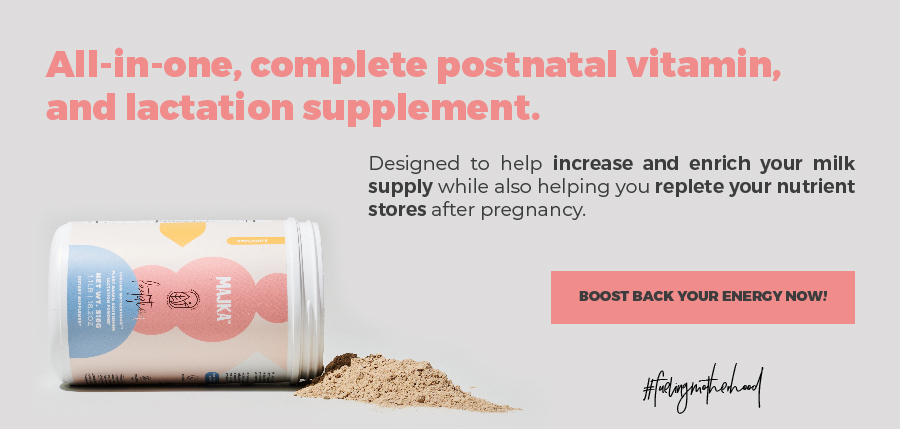
There is a lot to consider when becoming a parent; this new addition to your family means a whole different routine, for you, your partner, another child in the house and for the people near you.
It also implies physical, financial and time challenges where you and your partner are going to be looking to adapt to.
How to adapt to a new life with a baby
Becoming a parent involves a lot more than taking care of a baby. As a mom, you have been through pregnancy and now you are experiencing a postpartum and nursing period; and although your partner isn’t experiencing the physiological changes, he/she is also dealing with new challenges while looking to get involved with you and with the baby.
In order to adapt to all of this, first of all it’s important to be patient and to find the balance that works best for your family.
Balance is important in everything that we do, and this applies to primary parental preoccupation as well; excessive worry can lead to parental anxiety and too little worry may lead to risks.
Adapting to parenthood can involve feeling restricted from pursuing other goals and hobbies including social interaction and having less time to rest, it can mean a loss of things that you didn’t want to lose, but keep in mind that as your baby grows you can start to have more time and energy for yourself; this journey won’t be like this forever and it may be better for you to focus on what it does bring right now to you than on what you lost because of it.
How long does it take to adjust to parenthood?
Babies develop pretty fast and their needs change while doing so, which means that establishing a steady routine with your baby is more of a fantasy than a reality; and as everything else, the learning curve of parent duties take time; at first your attention may be focus on understanding why your baby cries, how much sleep he/she is getting or how many diapers you will need that day, but as you get to knowmet your son/daughter more it will become easier to predict what he/she needs.
Adjusting to parenthood doesn’t happen all of a sudden, as your baby’s needs change, so does yours; and new adapting situations such as going back to work, feeding changes, breastfeeding cessation, your baby starting to walk and requiring a different care can evolve.
In summary, there isn’t an exact period of time where you will take to adjust to parenthood, but time and practice will make things easier.
How to keep the relationship strong after having a baby
During pregnancy, your partner may feel a lot more involved with you than in the postpartum period. The fact that he/she isn’t the one breastfeeding doesn’t mean that he/she doesn’t have to get involved; your partner can always team with you by doing other helpful things (burping, changing diapers, helping around the house, running errands, supporting you, helping to make sure you are hydrating and snacking, encouraing you, protecting you space) chores.
It’s important to enroll your partner in the whole process, let him/her know what changes your are experiencing so he/she doesnt take it personally if you are going through a rough emotional time or if you are over tired; also, you may want to know how he/she feels, sometimes the partner feels set aside once the baby comes.
Communication is key. Talk to your partner about your parenting expectations, each of you can share what your new needs are and a way of teaming up in order to follow them, keep in mind that you are in this together, it isn’t a competition.
Although each role is different, you are both experiencing new challenges and you each need emotional support; at the beginning it may seem impossible but once you get more on your feet it’s important to make the space for affection and intimacy, you may not be able to return to the routine that you had before your baby was born, but you can always find new ways to enjoy your time together.
What to keep in mind when becoming a parent
Every person, couple and family has their own way of managing their lives and routine, so there isn’t a rule for this, but in the following we share with you some recommendations that may help you feel less overwhelmed and to enjoy more this journey:
- Talk to your partner about your parenting expectations, in order to have an effective communication about how you are both going to manage this new journey
- Get educated about physiological changes: talk to your health care provider about what pregnancy and postpartum may imply, especially regarding emotional roller coasters and less sleep so you can be aware of your changes.
- Get some skill training in basic infant care such as managing sleeping, feeding and crying.
- You don’t need to guess or have a natural instinct about breastfeeding, if you choose to do it, you can have a Lactation Consultant help you make this easier and answer your doubts.
- You may want to set aside some money for hidden costs that you may not consider before or that you are not accustomed to.
- It’s ok to make some time to take care of yourself, seek support from family and friends.
In Breastfeeding 101 we hope this information has helped you to have a more clear vision of what adjusting to parenthood may mean and things that you can do to make this easier and enjoyable.
We are happy to have you here and we invite you to follow all of our content to learn more about this topic.
In the following we share with you some of the sources that made this article possible:
- Couple’s Relationship during the Transition to Parenthood and Toddler’s Emotional and Behavioral Problems I MDPI
- Costs and Rewards of Children: The Effects of Becoming a Parent on Adults’ Lives I JSTOR
- Mother and Father Adjustment during Early Parenthood: The Roles of Infant Temperament and Coparenting Relationship Quality I National Library of Medicine
- Parenting and Child Development: A Relational Health Perspective I Sage Journals
- Psychological Challenges of Transition to Parenthood in First-time Parents I Practice in Clinical Psychology
- Supporting couples across the transition to parenthood I AIFS
- The Effect of the Transition to Parenthood on Relationship Quality: An Eight-Year Prospective Study I National Library of Medicine
- Thinking for Three: Mothers’ and Fathers’ Narratives on Transition to Parenthood I The Open Psychology Journal
- Transition to parenthood: the needs of parents in pregnancy and early parenthood I BMC
Annie Rueb






